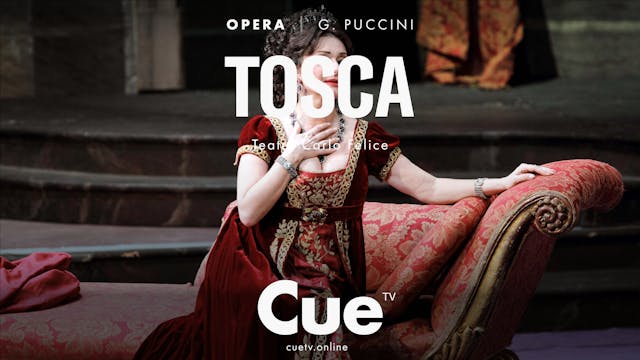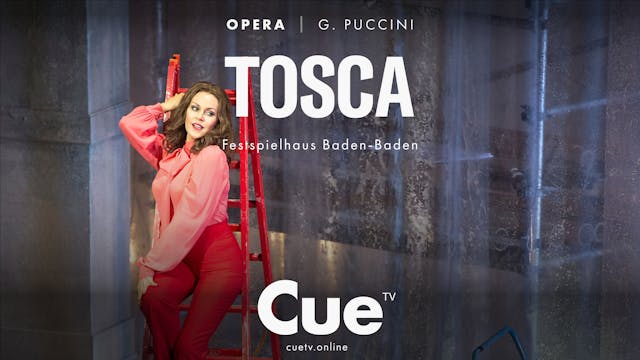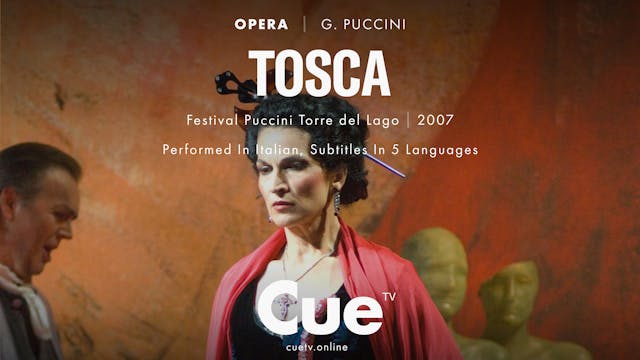An Opera Film Première, that can be undoubtedly counted among the other classics of this genre, such as Ingmar Bergman’s Zauberflöte, Joseph Losey’s Don Giovanni, Pier Paolo Pasolini’s Medea or Franco Zeffirelli’s Traviata, was released at the end of 2001: Benoît Jacquot’s Tosca. In 1964 a film of Tosca was already planned, but only its soundtrack was eventually released. Then, in 1992, a controversial “reality-version” of Tosca came out, set in the story’s original sites and times. The sensitivity with which Jacquot filmed the “crime” of Tosca is still unrivalled. He managed to find a balance between a modern version, an historical crime and an opera staging. With the “dream opera couple” of our times, the (then) married couple Angela Gheorghiu and Roberto Alagna in the two main roles of Tosca and Cavaradossi, as well as Ruggero Raimondi as Scarpia, Jacquot had three star singers at his disposal, who have excellent acting skills too. This allowed the director to film close-ups of the singers: it is remarkable how he let the three protagonists sing their arias in all serenity and simplicity without disturbing the musical flow through "cinematic antics". Jacquot uses several stylistic means, which are quite new and carry a distinctive signature. For example, he lets the singers repeat some of the lyrics before or after the music or act in “a parte” (to the side) sung passages with a closed mouth. Some of the techniques used here wouldn’t be possible on a theatre stage, but they are not confusing or disturbing, they actually give a structure to the movie, by interpreting the opera and thus explaining it. First, the interruptions of the opera plot surprise with black-and-white images from the recording studio and with occasional exterior shots of the action scenes in coarse-grained colour, which are attuned to the plot ambience. But it is especially through the “intermittent” appearances of the actors during the musical work and “off-stage”, concentrated exclusively on the music expression, that the opera characters interestingly assume significance. In addition to all of this, you can also watch the young conductor Antonio Pappano with the Royal Opera House Choir and the Covent Garden Orchestra at work. The great décor, the objects and the beautiful costumes of the movie are accurate, and the light and camera work help make this Tosca movie incredibly thrilling.
Tosca, a Benoît Jacquot’s film (2001) from the homonymous opera of Giacomo Puccini with Angela Gheorghiu (Tosca), Roberto Algana (Cavaradossi), Ruggero Raimondi (Scarpia), Maurizio Muraro (Angelotti), Enrico Fissore (the sacristan), David Cangelosi (Spoletta), Sorin Coliban (Sciarrone), Gwynne Howell (the jailor) and James Savage-Hanford (the shepherd).
Up Next in Tosca
-
Tosca (2010)
This production from the historic Teatro Carlo Felice in Genova, Italy, stars the opera world’s power couple, Daniela Dessì and Fabio Armiliato, as lovers Tosca and Cavaradossi. A tragic tale of doomed love interlaced with the age-old themes of jealousy, lust and intrigue, has ensured Tosca its p...
-
Tosca (2017)
Tosca by Giacomo Puccini, from Festspielhaus Baden-Baden, 2017. Directed by Andreas Morell, conductor Sir Simon Rattle. Starring Kristine Opolais (Floria Tosca), Marcelo Álvarez (Mario Cavaradossi), Marco Vratogna (Baron Scarpia), Alexander Tsymbalyuk (Cesare Angelotti), Peter Rose (Il Sagrestano...
-
Tosca (2007)
Tosca by G.Puccini, from Festival G.Puccini Torre del Lago, 2007. Directed by Mario Corradi, conductor Valerio Galli, starring Riccardo Ferrari, Stefano Secco, Giorgio Surian, Fernando Ciuffo, Antonia Cifrone, Franco Boscolo, Giovanni Caramanna, Massimo La Guardia and Veio Torcigliani. Performed...



